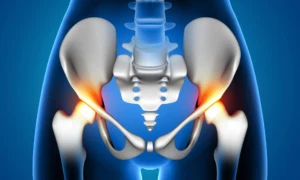Prescription medications are a common sight in a lot of households. Over 131 million Americans take prescription medications. Granted, many of those people are senior citizens taking prescriptions to manage chronic health conditions, but many are not. If you are buying medications regularly, though, there are some things you should consider before filling your next prescription. Keep reading for five things you should keep in mind.
1. Proper Storage Conditions
It’s not well known, but the temperatures at which medications are stored can affect how well the medications work. For example, higher temperatures will often substantially reduce the working life of medication. Beyond that, high heat can make medications less effective. On the other hand, some medications require refrigeration when stored to keep them effective, such as insulin and many vaccinations.
Minimally, the next time you visit your pharmacy, make sure that the temperature is somewhere in the 60 to 75 degrees Fahrenheit range. Beyond that, make sure the storage area is clean, dry, and appears to have good ventilation.
2. Stay Cautious When Buying Online
While ordering from your usual pharmacy online is rarely problematic, some people will select different online pharmacies based on price. While this can work, you should remain cautious about sellers that offer too good of a price. This is one warning sign that they’re selling counterfeit medications.
As a good rule of thumb, you should also steer clear of any online pharmacy that doesn’t require you to upload your prescription to them. Reputable pharmacies require a prescription from a licensed physician before they’ll fill an order. If they don’t require the prescription, you simply cannot know what will arrive in the mail. It might be the right medication or might not be medication at all.
3. Bring Your Most Recent Prescription
These days, many doctors will phone in a prescription or send the prescription online to your regular pharmacy. In many ways, this is a more practical and even safer option. After all, an online order will arrive in typed text, not handwriting. A phone conversation also avoids the problem of the pharmacist trying to decipher handwriting that may range from excellent to completely illegible.
If your doctor does hand you a prescription on paper, make sure that you take it with you. This lets the pharmacist see the prescription, which helps them verify that a licensed physician issued it.
4. Avoid Self-Medication
While it might not always seem like a big deal to buy some over-the-counter medication for a cold or a headache, it can become very serious. Prescription medications often interact with other prescription medications and with over-the-counter medications. Those interactions can range from fairly mild to downright life-threatening.
If you are taking prescription medications, you should have a long discussion with your doctor about what kinds of over-the-counter medications you can safely take in combination with your prescriptions.
5. Don’t Overpay
While it often strikes people as counterintuitive, prescription prices can vary quite a bit from pharmacy to pharmacy. This is often a byproduct of what kind of deals a pharmacy or chain of pharmacies can make with prescription drug manufacturers. A lone pharmacy or small regional chain of pharmacies may only get a small discount from pharmaceutical companies. A national chain of pharmacies might get a substantial discount, which lets them charge a lower average price.
Shopping around a little can save you some money. You can also find programs that offer Rx cards. These cards can often get you a substantial discount on the price of even name-brand prescription drugs right at the register. While you should always deal with reputable pharmacies, you don’t always need to pay full pharmacy prices on your medications.
The Bottom Line
Purchasing prescription medications is part and parcel of many people’s lives. It’s such a normal process that many people go through the motions without fully considering the behavior. Yet, there are things to consider, such as the storage procedures at the pharmacy and the potential dangers of buying medications online. People will also routinely mix over-the-counter medications with prescriptions without checking with the doctor about potential interactions. You should always bring your most recent prescription with you. Don’t be afraid to shop around a little or get an Rx card to help you save a bit of money on the bill.






























